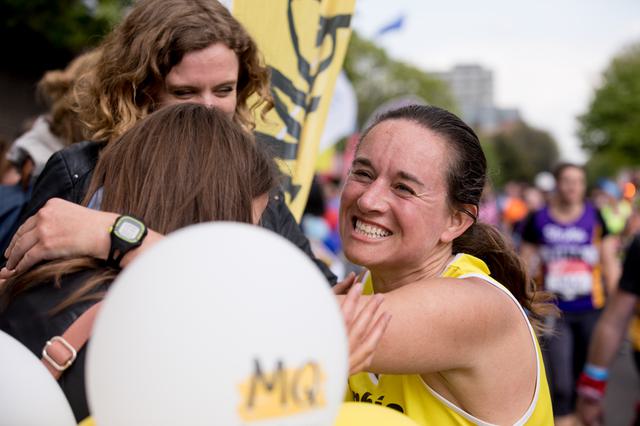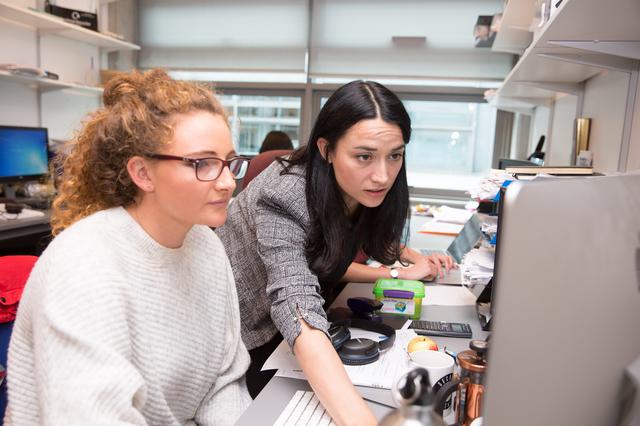How MQ’s brilliant faith in relationships is launching them into sustainability
- Exhibited by
- Rachel Stephenson Sheff, I.G. Advisors
- Added
- July 25, 2018
- Medium of Communication
- Target Audience
- Type of Charity
- Healthcare
- Country of Origin
- UK
- Date of first appearance
SOFII’s view
This is a great story. MQ was founded just five years ago, with only a solitary fundraiser on the staff, but they overcame the obstacles thrown in their path by working closely with their committed supporters and a faith in building relationships with donors. The results have been spectacular and MQ's success continues year on year.
Background
MQ is a London-based charity with a mission to create a world where mental illness is understood, effectively treated and ultimately prevented. Through their network of committed supporters, they champion and fund research into the mental health space, and this only continues to grow with their excellent fundraising team of seven that raises just under £2m per year.
Summary / objectives
MQ was established in 2013 through an unrestricted £20m grant from the Wellcome Trust. This support was obviously transformative – but, like that of all proverbial fairy godmothers, came with one important condition: become sustainable once the funding runs out. As a completely new charity with limited resource, MQ has had to figure out how to leverage the full potential of this support to ensure they can survive beyond it.
But from £0 raised in 2013 (excluding the Trust) to £1.9m raised in 2017 – they are well on their way. And their secret to success is an extraordinary faith in relationships.
It’s no secret that relationship-building is critical to major gift fundraising, and it’s a proven fact that most major gifts take between 12-18 months to close. However, most organisations don’t (or aren’t able) to fully trust in this process and wait it out. While MQ does have the cash flow benefit of the Wellcome grant, they, like most charities, still have had to convince their board to have faith in this process. To trust in the 12-18 month timeline. And to not back out when cash isn’t immediately rushing through the door.
To top it all off, when MQ launched there was just one major gift fundraiser on staff for the first two years: Paul Stein. One fundraiser meant to manage all of these relationships, transition them into gifts, grow the team, and ensure the eventual sustainability of the operation. Wellcome or no Wellcome, any fundraiser can agree this is no small task.
But Paul dived straight in, eventually growing the team to seven, and anyone who has met with them will immediately understand why they have been so successful: they are the crème-de-la-crème of relationship builders. From Paul to Emily Wheeler, MQ’s head of high value partnerships who I had the pleasure of interviewing for this piece – they are ruthlessly organised, charmingly warm, and remember small details about your life (that you yourself have probably forgotten). They ask for advice, rather than funding, while striking a brilliant balance of directness that makes you immediately trust them.
This is the key ‘star’ quality Paul hired for, but as MQ’s investment in fundraising began to grow, Paul and his team had to constantly manage the board’s concerns around why hiring new staff didn’t immediately translate into more cash in their account (a valid concern for any trustee to have). They had to pass on – and evidence – this faith in the 12-18 month timeline, while ensuring they were able to manage this bespoke approach within a small team.
Getting a board to remain patient for that initial 12-18 period is no small feat. To do this, MQ not only reported to trustees on the number of pounds raised, but also on the number of relationships built. They pushed back when needed, and equipped themselves with a detailed relationships pipeline that included expected ‘close’ dates to work backwards from. Furthermore, they created incentives within the team to applaud staff for cultivation, as well as solicitation.
Creator / originator
Paul Stein started and continues to lead MQ’s fundraising operation. When he was first recruited, the team consisted of just him, and he then grew this to seven full-time staff who manage all of MQ’s individual giving and high-value partnership work. Emily Wheeler, MQ’s head of high value partnerships, works closely with Paul and was interviewed for this SOFII piece.
It should also be noted that Paul co-wrote the sector’s widely praised book, Donors for Life: a Practitioners Guide to Relationship Fundraising.
Influence / impact
What’s brilliant about MQ’s approach is that it’s working. With their faith in the relationship-building process, and ability to convince their Board to have faith along with them, at exactly the 12-18 month mark, the gifts started coming in. It was “almost comical”, as Emily Wheeler put it, to see the science behind the art play out so precisely. And through this prioritisation of cultivation, MQ is well on its way to becoming sustainable by their proverbial strike of Wellcome midnight.
This evidence is not only strengthening MQ’s relationship with the Wellcome Trust, but it is also strengthening the trust between MQ’s fundraisers and its Board. It has cemented MQ’s relationship- based approach to all future fundraising, and justified the investment of additional resource toward this.
While, of course, MQ was in an extremely fortunate position to have the cash flow contingency of a large seed-funding grant, they are a new charity whose brand alone doesn’t open doors. And who, at the beginning, had very limited internal resource to make things happen (most of that £20m grant had to be applied to MQ’s actual research work, so they could generate enough mission impact and evidence to justify fundraising in the first place). What they have accomplished in this context is remarkable and something every fundraiser can learn from: as much as your cash flow allows, create actual space for, and incentivise, relationship-building. It will be worth it.
As Emily emphasised, ‘we do anything we can to build relationships rather than ‘fire-fight’ and ask for
money in the first meeting. You need to just go out and talk to people. Good people lead to good
people, and the gifts do come in! Trusting this process also means a lot of our funding comes in
unrestricted, which is like gold dust.’
Other relevant information
The ability for a charity to allocate significant time and resource to relationship building is certainly a luxury, but it is also vital to major gift success. To accommodate this, MQ makes sure to focus on processes and systemising, so they aren’t always reinventing the wheel. They have an intricate matrix of reminders; focused events and touch points throughout the year; first class proposals and reporting templates; and an exemplary level of transparency, sharing the challenges and aims of their work with key supporters.
At the same time, MQ leverages the fact that they are a new organisation with a small team to both
impress and recruit new support. As Emily noted, ‘a lot of the time, people are surprised that we’re so
professional and organised because we’re so young. And this bumps us up a notch.’ They know this
unique position forms a compelling proposition for philanthropists with an investment mindset, and
this has become an important part of their strategy. Rather than targeting just any donor, they build
relationships where there is a natural chemistry to begin with.



















